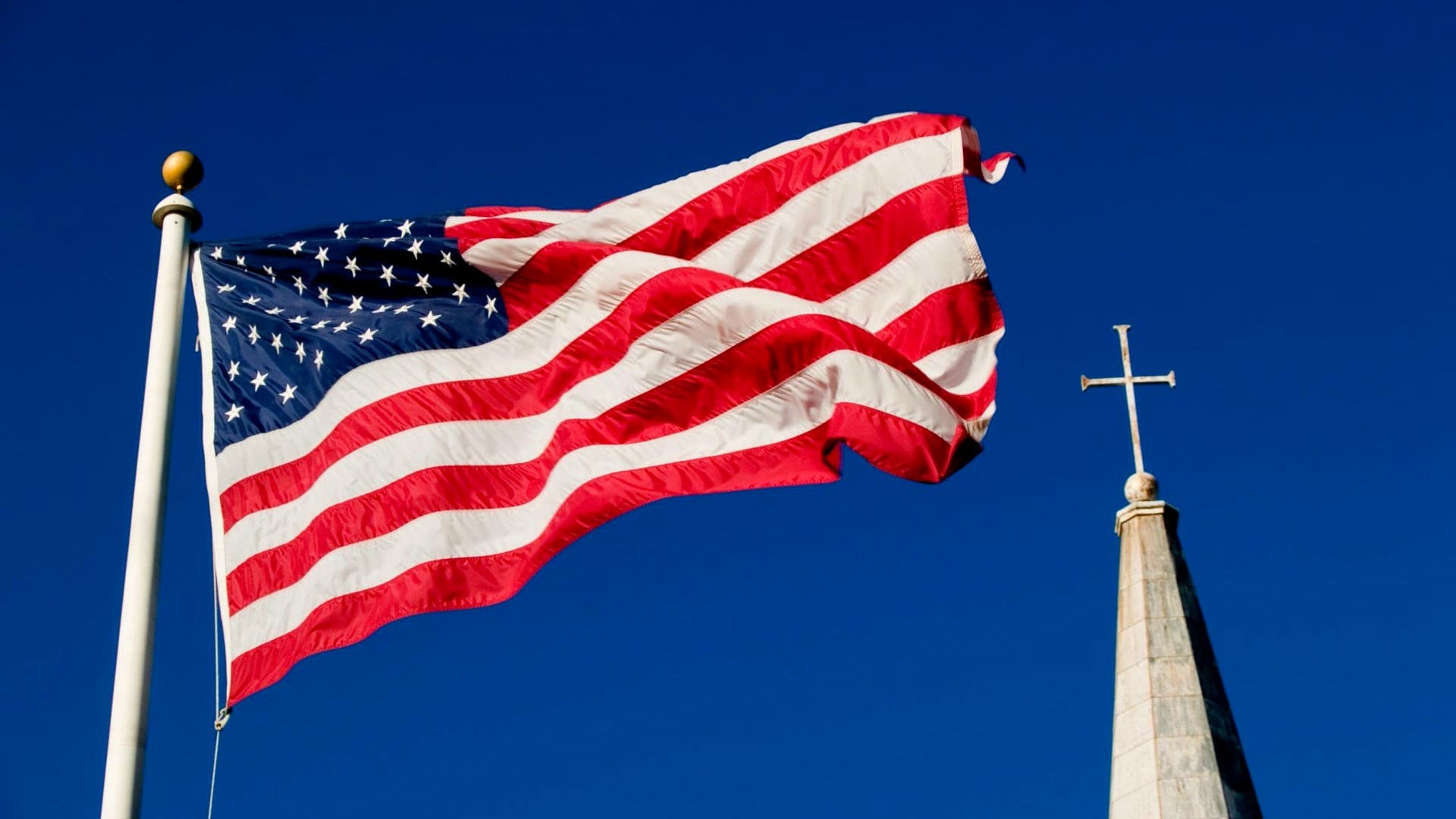IRS says churches can endorse political candidates in reversal of decades-long precedent

- Following a lawsuit filed last year by a group of conservative evangelical organizations and churches, the IRS is changing its decades-old stance on political endorsements made by churches.
- In a court filing on July 7, the IRS said that political endorsements made by church leaders to their congregants would not conflict with traditional IRS rules against religious political activity.
NASHVILLE − In a reversal of decades of legal precedent, the Internal Revenue Service said in court filings on July 7 that churches and other religious 501 c(3) organizations can endorse political candidates in certain circumstances.
The new position, made in a joint filing intended to end a lawsuit brought by a group of high-profile Christian organizations last year, carves out a narrow exception to the Johnson Amendment, which has banned political activity by churches since 1954.
The rule was introduced by former President Lyndon B. Johnson in 1954 when he was serving as the U.S. Senate majority leader. It banned all tax-exempt organizations like churches and charities from “directly or indirectly” participating in politics, specifically in endorsement or opposition of candidates.
In the filing, the agency stated that political endorsements made by a church would not be seen as “participating” or “intervening” in political campaigns, but instead as a “family discussion concerning politics.”
“When a house of worship in good faith speaks to its congregation, through its customary channels of communication on matters of faith in connection with religious services, concerning electoral politics viewed through the lens of religious faith, it neither ‘participate(s)’ nor “intervene(s)’ in a ‘political campaign,’ within the ordinary meaning of those words,” the IRES stated in the filing.
The agency went on to explain that the new position was in keeping with the IRS’s usual enforcement of the Johnson Amendment — which the agency admits it “generally has not enforced” — citing a 2017 executive order signed by President Donald Trump that limited the Department of Treasury’s actions against houses of worship for political activity.
It's common for religious figures and groups, including denominations, to publicly align with or even support candidates on both sides of the political spectrum. Political candidates regularly visit houses of worship to engage potential voters. But often, churches and pastors have been careful about how they show that support or the formats in which they show it, such as during sermons in weekly worship services.
The July 7 filing was the product of a lawsuit filed in Texas in September 2024 on behalf of the National Religious Broadcasters, an international association of evangelical Christian communicators, as well as Intercessors for America, a conservative Christian prayer advocacy group. Two Texas churches also joined as plaintiffs: First Baptist Church Waskom in Waskom, Texas, and Sand Springs Church in Athens, Texas.
In a statement made when the lawsuit was filed, the NRB stated the groups felt that their speech has been “wrongfully silenced” under the Johnson Amendment.
“We believe that all nonprofits should have the constitutional right to freely express their point of view on candidates, elections, and issues on the ballot,” NRB President and CEO Troy Miller said. “Our challenge to the Johnson Amendment is about securing the future of free expression for all Americans, particularly those standing in the pulpit.”
In the IRS’s filing, the agency seems to agree with Miller regarding the First Amendment implications of the Johnson Amendment.
“Interpreting the Johnson Amendment to reach (political communications made within a house of worship) would create serious tension with the First Amendment’s Establishment Clause: That broad interpretation would treat religions that do not speak directly to matters of electoral politics more favorably than religions that do so — favoring some religions over others based on their speech to their own congregations in connection with religious services through customary channels of worship and religious communication,” the filing states.
According to a 2024 survey conducted Lifeway research, a Southern Baptist Convention research organization, only three in 10 U.S. adults (29%) believe pastors publicly endorsing candidates for public office during a church service is appropriate. Three in five (60%) disagree, including 42% who strongly disagree and 11% aren’t sure.
When asked directly in the survey if churches that endorse political candidates should lose their tax-exempt status, around 48% of respondents agreed, 31% disagreed and 21% weren’t sure.
But the percentage of Americans who see pastors endorsing a candidate in church as appropriate has risen steadily over the past 16 years, according to the organization. In the first survey of the topic in 2008, only 13% saw political endorsements during a church service as acceptable. The number rose steadily in the second survey conducted in 2015, before rising to its current 29% in 2024.
The Paste BN Network - Tennessee's coverage of First Amendment issues is funded through a collaboration between the Freedom Forum and Journalism Funding Partners.
Have a story to tell? Reach Angele Latham by email at alatham@gannett.com, by phone at 931-623-9485, or follow her on Twitter at @angele_latham